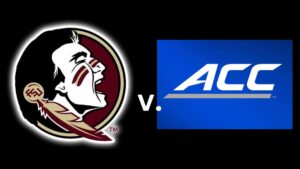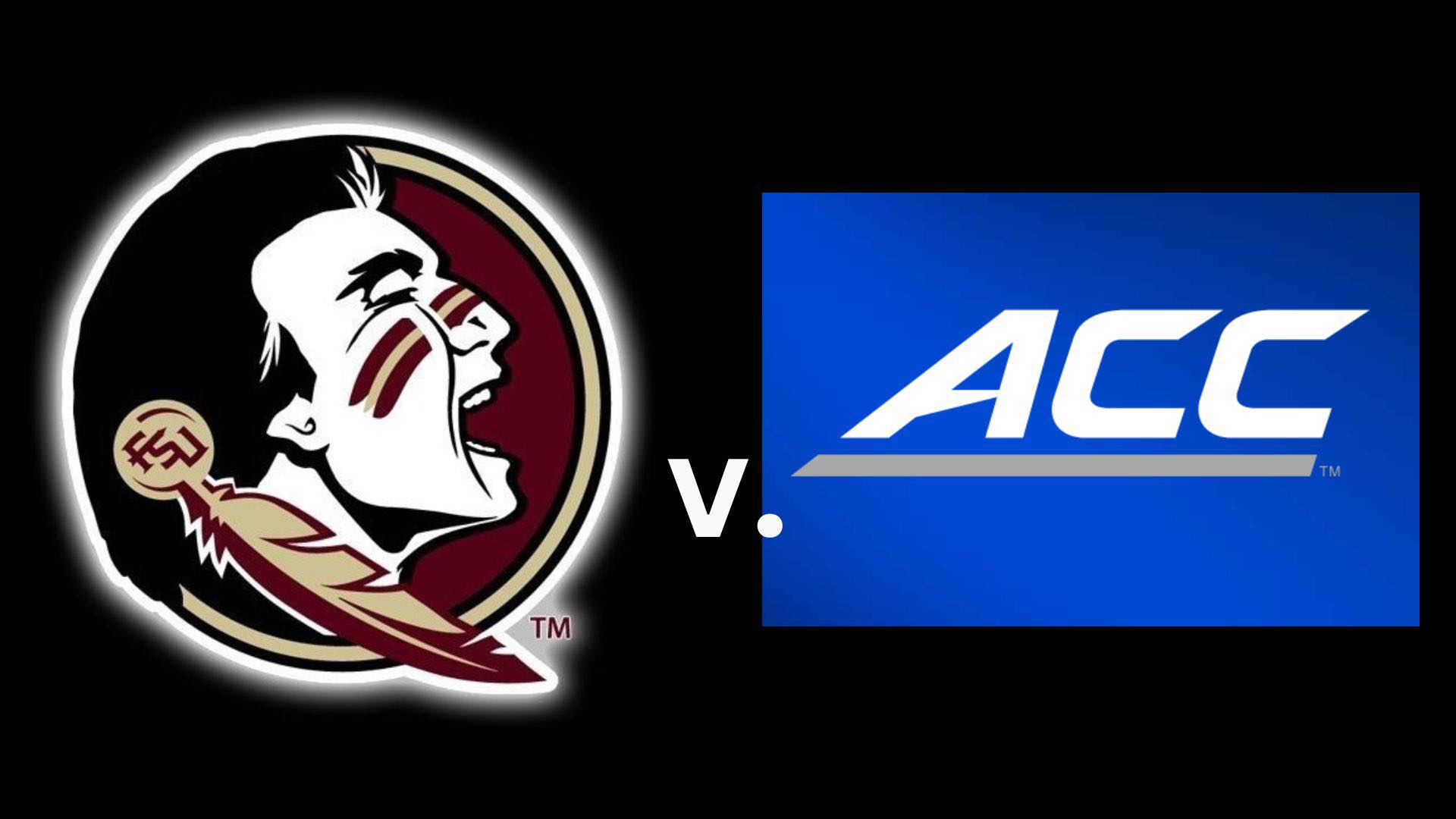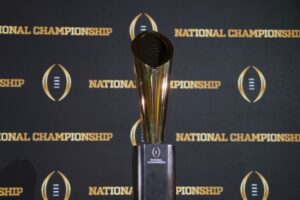In the long-running, multi-channel entertainment series that is the lawsuits pitting Florida State and Clemson against their conference, the ACC got the first shot at the appellate process Wednesday (9/11).
Attorneys for both sides gave their oral arguments Wednesday in front of a three-judge panel in the Florida First District Court of Appeal.
The ACC filed the appeal, in the matter of Florida State v. ACC, based on, what it called, a judicial foul by the judge in Leon County.
The Reason We Are Here
In June, Judge John C. Cooper denied the conference’s motion to stay the case with the ACC as the defendant. The conference contended that with the appeals process already underway in Mecklenburg County, NC (with FSU appealing that judge’s denial of the school’s motion to dismiss), it would be improper for the case to proceed in any other venue. ACC attorneys filed a 54-page motion that said, under the “First to File” principle, the primary venue(s) for any of the legal issues would be North Carolina.
Judge Cooper denied the motion to stay. He said the conference had been “forum shopping,” in filing the breach of contract lawsuit against FSU days before the school’s board of trustees had even voted to sue to get out of its conference contract. In addition, he later denied the ACC’s motion to dismiss the FSU lawsuit in Florida.
Process
In all the other cases, the appellant waited until the entirety of the early process was over before filing the appeal. Those hearings on the initial motion to dismiss took one day. Judge Cooper took three hearings to get through the same motions. The ACC filed its appeal before the third hearing was even scheduled.
By not granting the stay, Judge Cooper set a path that all discovery and pre-trial work will continue in Florida. However, the NC version of the case is headed for the state supreme court after the first of the year.
The underlying element in all the cases is who has the jurisdiction to hear the cases. A court in the ACC’s home state of North Carolina? Or the courts in the home states of the schools? The fact that both the schools and the conference are suing and countersuing each other makes it all the more complex.
Attorneys for each side had 20 minutes to present their oral arguments before Judges Ross L. Bilbrey, M. Kemmerly Thomas, and Joseph Lewis, Jr. The panel had already gone through the legal briefs well before the hearing.
The ACC Argument
Alan Lawson represented the ACC in court Wednesday. He has been part of the legal team in court for the ACC at every hearing in Florida, South Carolina, and North Carolina.
He argued that the conference would face irreparable harm by having the Florida case continue to trial while jurisdictional issues were being heard in appeals in North Carolina.
Judge Bilbrey asked Lawson about the conference doing an “Anticipatory filing” of its lawsuit. This claimed breach of contract before the school had actually breached it. This tied into Judge Cooper’s written opinion that the conference was, “Forum shopping.” Judge Bilbrey asked if this did not constitute a special exception to the “First to File” principle.
Judge Thomas asked Lawson how the ACC could ask for special consideration now when the conference had filed the first complaint in North Carolina without the two-thirds vote of approval by the ACC members. The conference held the vote after the first filing. Then the conference amended the original complaint.
Lawson called Florida State, “A natural defendant.” This is because the school had been vocal about its intentions to try to leave the conference. He argued the vote by the Board of Trustees was simply a formality in the process.
Lawson later said that it must be extraordinary circumstances for an otherwise routine stay to not be granted. He said there were no extraordinary circumstances mandating the denial.
The Florida State Side
Attorney Eliot Scherker was brought in to represent Florida State specifically in the appeals process. He said the ACC was not entitled to any special consideration. Scherker said the discretion in the matter was with the trial court, (Judge Cooper), and thus not subject to review by a higher court, (Writ of Certiorari). He said the ACC did not follow its own rules by not conducting the vote before the first complaint.
Judge Lewis asked about the potential for the different courts in different states to come up with verdicts at trial that created different rulings over what were essentially the same contracts. Scherker said conflicting rulings cannot be a factor, “Or first to file would always rule.”
Scherker added that the Grant of Rights states that the conference owns the media rights to a member school’s home games for as long as they are a member of the conference. He contended that since Florida State is a public school, the state of Florida owns those rights should FSU leave the ACC.
He noted that no Florida state law deals with the issue of anticipatory lawsuit filing (as is the claim against the ACC) so Judge Cooper had to rely on federal case law.
Scherker said if the ACC wanted to avoid any of the morass all sides are currently in, they could have filed their suit against FSU in Florida. The comment drew a smirk from ACC attorney Lawson sitting at the counsel’s table.
Next
With each side having used about 30 minutes for their oral arguments (20 mandated minutes plus extra time granted by the court), the three-judge panel ended the hearing. It is expected they could deliver their ruling by as early as the end of the year. But without a stay in place, the case in Leon County moves ahead toward trial. This is well ahead of the pace of any of the other lawsuits.







